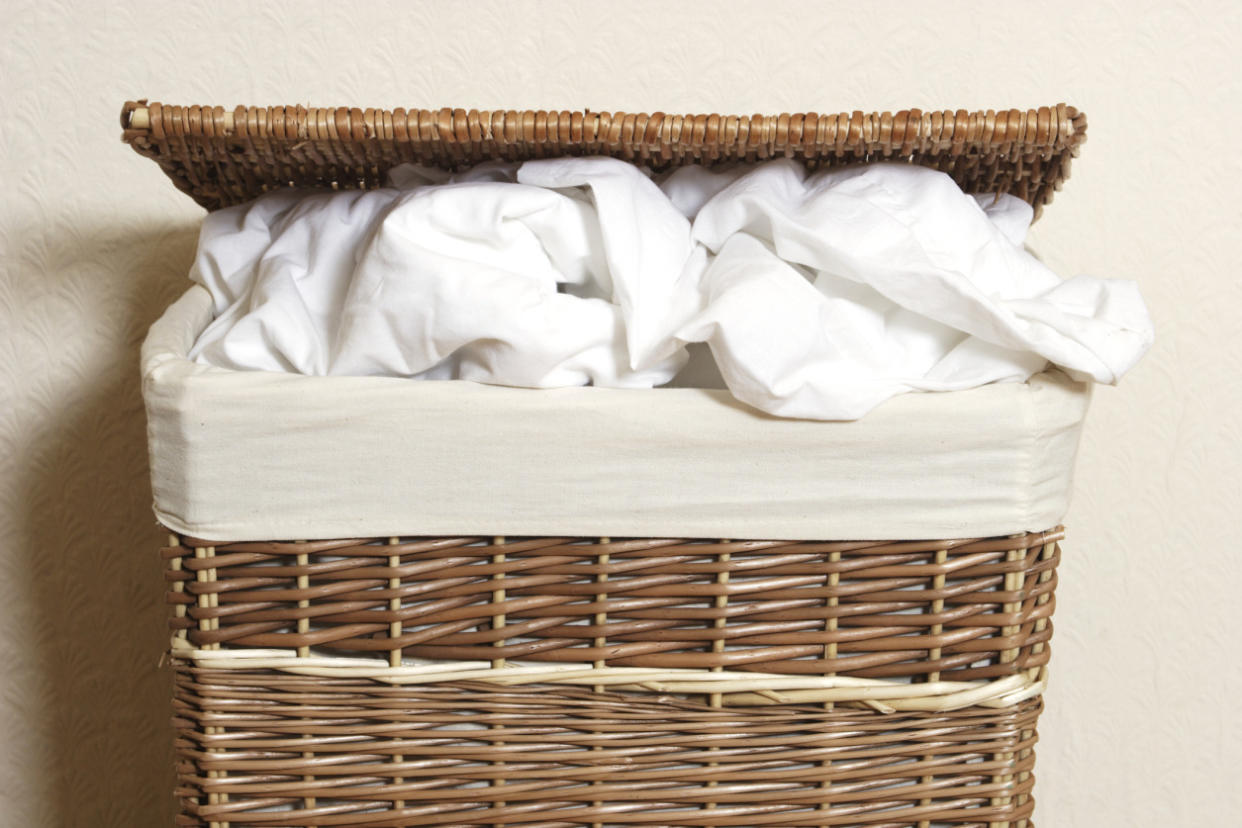This Is What Happens When You Don’t Wash Your Sheets

OK, be honest — when was the last time you changed your sheets? (Getty Images)
If you’re thinking you can go more than seven days without stripping your bed and still be sleeping in a sanitary environment, you may be in for a rude — or shall we say crude — awakening.
“Once a week is a safe amount of time, as long as there’s no bodily secretions or any potential risk factors,” Marilyn C. Roberts, PhD, professor of environmental and occupational health sciences at the School of Public Health at the University of Washington, tells Yahoo Health.
The germy bad news
Let’s start with infectious fluids that can soak into your linens, such as urine, vomit, diarrhea, and fecal spray, “which should be changed right away.” And while ear drainage from an ear infection is more likely to happen in a child’s bed, it’s worth noting, since the puss and bacteria left on the sheets can also “be very infectious.”
Related: You Don’t Want to Know What’s Lurking on Your Toothbrush
While many “typical” infections are transmitted from person to person, Roberts explains that some skin infections can be “caught” between the sheets. “Skin infections can be from foamite, so it can go from a person to a sheet and back to another person.”
And some bed partners are more susceptible to certain skin infections, like MRSA, such as a person who is obese (“it’s very hard to keep your skin clean”) or a swimmer (“your skin tends to break down and is less protective”), someone who has cuts and abrasions (“those can more likely get infected”) or a compromised immune system, or an older person (“and that depends on the person, since old can be 65 or 95”).
“The problem becomes when you have a pathogen that is causing an infection,” she continues. “The other thing that needs to be stressed is that people who have eczema and other kinds of skin conditions can be very susceptible to bacterial infections.”
And let’s not forget your favorite furry companion who might be sharing the other half of your pillow. “Dogs, by nature, are not hygienic,” stresses Roberts. “You can wash them every week, but they still go outside and sniff other dogs, so they can pretty much bring in anything.”
Related: The Gross Truth About Germs and Airplanes
“Anything,” such as pollen, dirt, worms, and insects, as well as Lyme disease, Leptospirosis (a bacterial infection that can lead to respiratory issues and kidney or liver damage), and Bordetella bronchiseptica bacteria, also known as kennel cough (which can cause illness in children and immunocompromised individuals).
“Pets should be pets — they should have their own bed because they can be a reservoir for human diseases,” states Roberts. “Or you can give your pet a disease, like MRSA, and then the pet can give it back to you.”
And now for the less germy (but still gross) news
Do you get the nighttime sweats? “If the sheets are pretty wet, I’d strip the bed,” says Roberts. “It just makes sense because the sheets may not dry out. Changing the sheets every day can be excessive, but it may turn out that at least once a week is necessary.”
For those who like to sleep in a bedroom that resembles the tropics (or if it’s during the warmer months and your room is not air conditioned), Roberts says that many types of bacteria can grow at room temperature, never mind a hotter one. “Again, it just makes sense to change these sheets more often,” she states. “If the sheets start smelling, that’s a darn good indication that you need to change them.”
Then there are dust mites, which Roberts says are lurking in just about every mattress and can cause allergic reactions.
“The real risk is that allergens increase with unwashed sheets as debris build up over time,” Dr. Philip M. Tierno Jr., professor of microbiology and pathology at NYU School of Medicine, tells Yahoo Health. As a result, this debris is “inhaled by the sleeper and may exacerbate existing allergies, asthma, or may contribute to the development of new allergies.”
Now here’s some good news: A little dirt in your linens shouldn’t kill you. “Some people don’t necessarily take showers every day and they’re dirty,” explains Roberts. “So if you see visible dirt on your sheets, it’s more of an ick factor than anything else.”
And the germs from the common cold won’t do you in either. “You will very rarely get transmission from a bed for a cold since a lot of the viruses don’t survive that well outside of the body,” she states.
So while the seven-day (more or less) laundry rule serves as a basic guideline, Roberts emphasizes using common sense. “And hopefully people will invest in more than one set of sheets.”
Related: All Germ Stories
Let’s keep in touch! Follow Yahoo Health on Facebook, Twitter, Instagram, and Pinterest. Have a personal health story to share? We want to hear it. Tell us at YHTrueStories@yahoo.com

